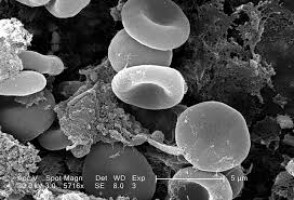
Myelodysplastic Syndromes (MDS) and acute myeloid leukaemia (AML) are rare haematologic malignancies of the bone marrow.
They can occur spontaneously or secondary to treatment for other cancers, so called therapy related disease, which is frequently associated with a mutation of the tumour suppressor gene TP53.
Standard treatment for these patients includes hypomethylating agents such as azacitidine or decitabine but unfortunately outcomes are very poor.
"Patients with TP53-mutant disease, which is roughly 10% to 20% of AML and de novo MDS cases, don't have many options for therapy with nondurable responses to standard therapy," said David Sallman, M.D., assistant member of the Malignant Hematology Department at Moffitt Cancer Center.
"There is clearly a need for new targeted therapies for this patient population."
Sallman is leading a national, multicenter clinical trial investigating a new therapy option for this group of patients. It builds upon the standard of care therapy, combining eprenetapopt (APR-246) with the chemotherapy azacitidine.
Eprenetapopt is a first-in-class mutant p53 reactivator. It is infused in the body and induces cell death in TP53 mutant cancer cells. It also has a synergistic effect when combined with azacitidine, meaning not only do the drugs work well on their own but also together they provide an amplified response.
Results of the phase 1b/2 trial to determine the safety, recommended dose and efficacy of the combination therapy were published in the Journal of Clinical Oncology.
Fifty-five patients (40 MDS, 11 AML, 4 MDS/myeloproliferative neoplasms) with at least one TP53 mutation were treated. The overall response rate was 71% with 44% having a complete response (50% for MDS patients), meaning no sign of disease with return of normal blood cell production.
The median overall survival for patients was 10.8 months. Patients who responded to treatment had significantly improved overall survival at 14.7 months. Additionally, 35% of patients were able to proceed with allogeneic stem cell transplantation with favourable outcomes versus historical outcomes in this patient population.
"The data is promising and supports the current phase 3, multicenter trial, which we hope will lead to FDA approval and a new much-needed treatment option for this patient population," said Sallman.
The World Cancer Declaration recognises that to make major reductions in premature deaths, innovative education and training opportunities for healthcare workers in all disciplines of cancer control need to improve significantly.
ecancer plays a critical part in improving access to education for medical professionals.
Every day we help doctors, nurses, patients and their advocates to further their knowledge and improve the quality of care. Please make a donation to support our ongoing work.
Thank you for your support.